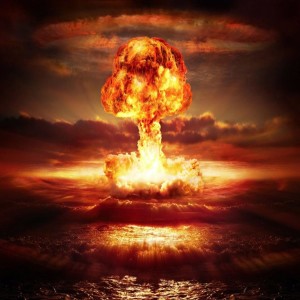
Parallax Views w/ J.G. Michael
Society & Culture

On this edition of Parallax Views, Friday, August 6th and 9th, 2021 will mark the 76th anniversary of the atomic bomb being dropped on the Japanese cities of Hiroshima and Nagasaki. Joining us to discuss the bombing from a critical perspective is Prof. Peter Kuznick, co-author with Oliver Stone of the hit documentary series (and its companion book) The Untold History of the United States. Kuznick, Professor of History and Director of the Nuclear Studies Institute at American University, makes the case that, contrary to popular belief, the dropping of the atomic bomb on Hiroshima and Nagasaki was unnecessary to ending WWII. Japan, he argues, would've surrendered. He provides evidence from intelligence reports to the comments of generals to make this case. Furthermore, he argues that the decision to drop the bombs as directed by FDR's successor President Harry Truman was actually about "sending a message" to the Soviet Union. From this perspective, Hiroshima and Nagasaki were collateral damage in service of a geopolitical agenda. Prof. Kuznick lay out the case in detail for why the bombings were both militarily unnecessary and moral unjustifiable in this fascinating and provocative conversation. But moreover, he notes how the unleashing of the atomic bomb all those decades ago led to a dangerous nuclear arms race that has extended beyond the Cold War. In light of the Bulletin of Atomic Scientists moving its Doomsday Clock to "100 seconds to midnight" this conversation is hopefully very relevant. Prof. Kuznick says that we must recognize the the mistakes of the past if we are to survive the 21st century without facing the existential risk of nuclear winter or species extinction. He also addresses common objection to these concerns, including deterrence theory and mutually-assured destruction
We discuss a number of different subjects and figures as they relate to the story of the atomic bomb including Albert Einstein, Gen. Curtis LeMay, General Douglas MacArthur, Dwight Eisenhower, Robert Oppenheimer, the Frank Committee, taking his students to the bomb sites and meeting survivors, the pivotal role of the Soviet Union in victory over the Axis Powers in WWII, the 7 generals and admirable who objected to the use of the atomic bomb, and much, much more.
More Episodes
Create your
podcast in
minutes
- Full-featured podcast site
- Unlimited storage and bandwidth
- Comprehensive podcast stats
- Distribute to Apple Podcasts, Spotify, and more
- Make money with your podcast
It is Free
- Privacy Policy
- Cookie Policy
- Terms of Use
- Consent Preferences
- Copyright © 2015-2024 Podbean.com






